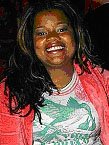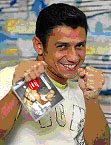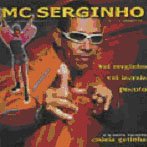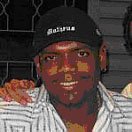BRAZILIAN BEATS -
SHAKING BODIES AND MINDS
FUNK




In Brazil funk is a popular form of music that has its roots in Miami Bass rap music style. The beats are deep and rapid, and the voice aggro. Funk has its origins in the slum culture of Rio De Janeiro. As the slums are frequently the feared and ignored half of metropolitan Brazil, funk is a reflection of this cultural division. Much like rap and hip hop culture, it is wildly popular yet feared in the United States, funk is viewed as an overly loud, aggressive, sociopathic form of music.
Like any kind of dance music, funk lifts heavily on samples - international rips, as well as rips on previous funk music. Much of the production occurs in small scale studios in Rio, and is distributed through hand-burned CDs in the markets throughout Rio, São Paulo, and Salvador.
The most popular and famous funk singers in Brazil are: Tati Quebra Barraco, Mc Leozinho, Mc Serginho, Mc Marcinho end the DJ Malboro. They’re responsible for the modern hits of funk and their main songs are: Boladona, Se ela dança eu danço, Eguinha pocotó, Glamurosa, which have conquered fans who crowd their.
The artists make the shows wearing funny clothes. They sing, dance, and ask the audience to come on the stage to sing together with them, turning the show into a special event. They have lights, specials effects, a high sound and a great group of dancers. Nowadays the funk has been accepted by high society, mainly the youngsters.
Legendary Rock : “Barão Vermelho”
The Brazilian rock group “Barão Vermelho” was born in 1981, in Rio de Janeiro. Roberto Frejat, Guto Goffi, Dé Palmeira and Maurício Barros had always wanted to play pure rock’n roll, but they didn’t have a vocalist. In 1982, they finally found Cazuza and so the group was completed.
Later this year they recorded their first album “Barão Vermelho” and in 1983, the second one called ““Barão Vermelho 2”. But they just reached success in 1984 with the song "Beth Balanço" and the third album of the band "Maior Abandonado". In January of 1985 they played at the Rock In Rio festival and in July Cazuza left the band to start his solo career.
That was a hard time for the band, but they overcame this difficult as Frejat became the new vocalist and two new members, Fernando Magalhães and Peninha, joined the band. The next few years were the best ones for the band. They released three more albums: “Carnaval”, “Barão ao Vivo”and “Na Calada da Noite” opened the show of Rod Stewart in Brazil and won many awards including the Sharp award for best rock group in 1990 and in 1992.
Just in 1999 they recorded live a new CD called “Balada MTV – Barão Vermelho”. This is a compilation of the best and the most famous songs of their career, including a new song "Enquanto Ela Não Chegar".
In 2001, after playing again in Rock in Rio 3 – for a better world, “Barão Vermelho” made a quick pause and their members did some parallel projects.
In 2004 they came back with the CD “Barão Vermelho”. This album returned to their early ages, with some really rock’n roll hits, such as ‘Cuidado’ and ‘A chave da porta da frente’. And in 2005, they recorded their first DVD, which shows a live performance of the group. It has a special surprise to the fans, the song “Codinome Beija-Flor”, that is sung by Frejat and, virtually, by the former vocalist of the band Cazuza (who passed away in 1990).
After 25 years and with 15 albums released, “Barão Vermelho” remains as one of the best and most popular Brazilian rock bands. “Por você”, “Puro Êxtase”, "O Poeta Está Vivo" are some of the unforgettable hits that gather different generations in the band concerts all over Brazil.
INIMIGOS DA HP
Pagode is a Brazilian style of music which has its origins in Rio de Janeiro. It mixes samba with other African rhythms. Pagode originally meant a celebration with lots of food, music and dance. In 1978 Beth Carvalho was introduced to this music, liked it and recorded tracks by Zeca Pagodinho and others. In the 1990s the music developed to include electronic instruments.
Iimigos da HP is an example of this kind od music. The band is formed by 8 people: Sebá, Alemão, Bonilha, Bruninho, Gui, Tocha, Leo, and Cebola. All of them are engineers except for Cebola, who is a lawyer. In their free time they usually played pagode in bars and they started as a band in May,1999. In order to learn about the instruments and the rhythm they bought a video about pagode.
The chosen name “ Inimigos da HP” is due to use of HP calculators at college. Their first success is “Quer Dizer”.
The official site of the Inimigos da HP is: http://www.inimigosdahp.com.br/, and they have two fan clubs.The band is slowly becoming part of the Brazilian music scenario
HARD CORE : the new love
Dead Fish is a Brazilian band that is not so popular. It was founded in Espirito Santo city in Brazil in 1991. The members of the band have been friends since their childhood, and they didn´t know how to play any instrument when they decided to start a band. Before that they used to go skateboarding every day.
In their songs they show their ideals by protesting, talking about the real situation of the world, or about specific revolutions sometimes.
Hard Core is not so popular in Brazil. There are many fans of Dead Fish and of the general Hard Core in Brazil, mainly in the big cities, and this number is growing fastly. But the majority of bands and shows are “underground” and are not usually advertised by the Media . Dead Fish left the “underground life” in 2004 when it signed a contract with the recorder Deckdisc. Although they are not so well known, this is a wonderful bend whose popularity is growing in Brazil.
FOREVER “CHICO”
Francisco Buarque de Hollanda, our “Chico”, is a Brazilian musician, composer and writer.
He became famous because of his lyrics commenting on the social, economic and cultural conditions in Brazil. Many songs from Chico talk about the dictatorship period. By this time, he created a pseudonym to continue composing without being censored: Julinho da Adelaide. With this pseudonym, he composed just three songs.
He is also very famous for his songs which talk about female matters. His lyrics are so beautiful that everyone gets impressed. Among them there are well known ones such as: “Olhos nos olhos”, “Terezinha” and “ Atrás da porta”.
Chico wrote music for the poem “Morte e vida severina” for a scenic paly im 1965. Since this, his presence in Brazilian theater has been constant.
Buarque has a lot of music styles, but his “sambas”are more popular. At present a new CD is being released.
SKANK: THIS IS WHAT POP IS ABOUT
The Brazilian pop group Skank initiated their career in 1991, in Belo Horizonte, influenced by reggae, ska and dube music, and they became the most popular band in Brazil in the 90’s.
Their music has a dancing atmosphere which became extremely popular at discos and parties. The first CD, “Skank”, was independently recorded and released by “Chaos” stamp. The second one, “Calango”, put the band in the market for good with several success hits, such as a "boom-shak-a-laka" version of “É proibido fumar”, released by Roberto Carlos in “Jovem Guarda” time.
“Garota Nacional”, “Pacato Cidadão” and “Tão Seu” are other big hits from the members: Samuel Rosa (lead singer and guitarist), Lelo Zaneti (bass player), Haroldo Ferreti de Souza (drums) and Henrique Portugal (keyboard).
Projects from
Fernanda Faria, Beatris C. Affonso, Marcelo Paiva,
Sara Rissato, Mariana K. Sarro and Bruno D. Pacheco.
Advanced 2
Teacher Virgínia
Centro Britânico
Pompéia Branch

0 Comments:
Post a Comment
<< Home